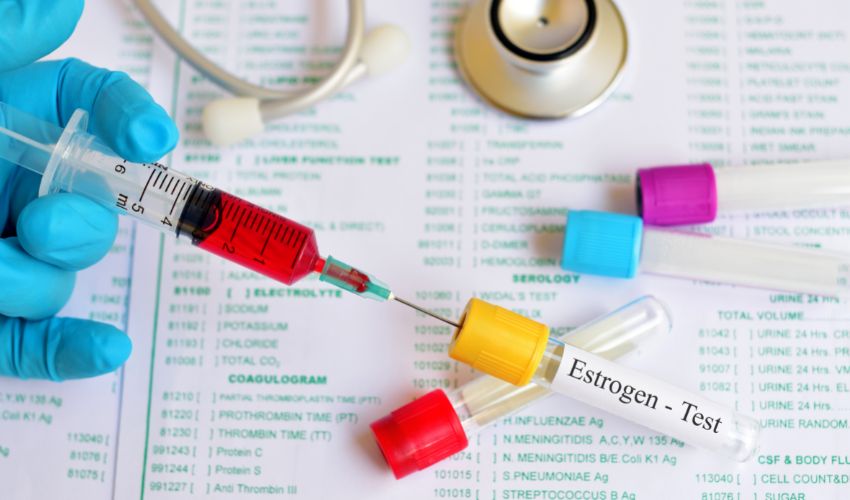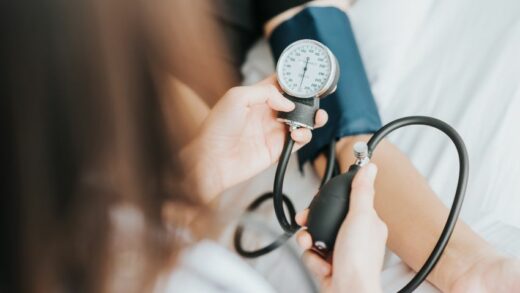Estrogen is a steroid hormone produced primarily by the ovaries in women, and to a lesser extent by the testes in men. Its effects on the human body are vast, and it plays a crucial role in several physiological processes.
Effects of Estrogen:
- Reproductive Health: Estrogen plays a significant role in female reproductive health. It helps regulate the menstrual cycle and is responsible for the development of secondary sex characteristics such as breast development, widening of hips, and pubic hair growth. Additionally, estrogen is essential for the growth and development of the uterus during pregnancy.
- Bone Health: Estrogen is also important for bone health. It helps maintain bone density, and low levels of estrogen can lead to osteoporosis, a condition where bones become weak and brittle.
- Cardiovascular Function: Estrogen affects cardiovascular function by reducing the risk of heart disease. It helps regulate cholesterol levels, reduces the risk of blood clots, and maintains healthy blood vessels.
- Brain Function: Estrogen is also essential for brain function. It helps with cognitive processes, such as memory and learning, and helps prevent neurodegenerative diseases such as Alzheimer’s.
- Skin Health: Estrogen also plays a role in skin health. It helps maintain collagen levels, which keep the skin looking youthful and healthy.
Reproductive Health:
One of the most important effects of estrogen is its role in female reproductive health. Estrogen regulates the menstrual cycle, promotes the development of secondary sex characteristics, and supports the growth and development of the uterus during pregnancy. In men, estrogen helps regulate testosterone levels and promotes the development of sperm.
Bone Health:
Estrogen is also important for bone health. It helps maintain bone density, and low levels of estrogen can lead to osteoporosis, a condition where bones become weak and brittle. This is why women are more susceptible to osteoporosis than men, as their estrogen levels drop significantly after menopause.
Cardiovascular Function:
Estrogen affects cardiovascular function by reducing the risk of heart disease. It helps regulate cholesterol levels, reduces the risk of blood clots, and maintains healthy blood vessels. Women typically have lower rates of heart disease than men, which has been attributed to the protective effects of estrogen.
Brain Function:
Estrogen is also essential for brain function. It helps with cognitive processes, such as memory and learning, and helps prevent neurodegenerative diseases such as Alzheimer’s. Research has shown that estrogen replacement therapy may improve cognitive function in postmenopausal women.

Skin Health:
Estrogen also plays a role in skin health. It helps maintain collagen levels, which keep the skin looking youthful and healthy. Low levels of estrogen can lead to dry skin, wrinkles, and other signs of aging.
In conclusion, the effects of estrogen on the human body are numerous and significant. It is a hormone that affects several systems in the body, including reproductive health, bone health, cardiovascular function, brain function, and skin health. Maintaining a healthy balance of estrogen is crucial for overall health and well-being, and understanding its effects can help individuals make informed decisions about their health.
FAQs:
How does estrogen affect mood?
Estrogen can affect mood by regulating serotonin levels in the brain. Low levels of estrogen can lead to depression and mood swings.
How does estrogen affect fertility?
Estrogen plays a significant role in fertility by regulating the menstrual cycle and promoting ovulation.
How does estrogen affect sex drive?
Estrogen can affect sex drive by increasing vaginal lubrication and promoting sexual desire.
How does estrogen affect weight gain?
Estrogen can affect weight gain by regulating metabolism and promoting fat storage in certain areas of the body.

How does estrogen affect breast cancer risk?
High levels of estrogen can increase the risk of breast cancer. However, low levels of estrogen can also increase the risk of other types of cancer.
Conclusion:
Estrogen is a powerful hormone that affects various bodily functions, from reproductive health to brain function. Understanding the effects of estrogen on the body is essential to maintaining overall health and well-being. By being aware of the effects of estrogen, individuals can take steps to ensure that their estrogen levels remain within healthy ranges. Whether it is through exercise, a healthy diet, or medication, taking care of one’s hormonal balance is vital to living a healthy life.





















